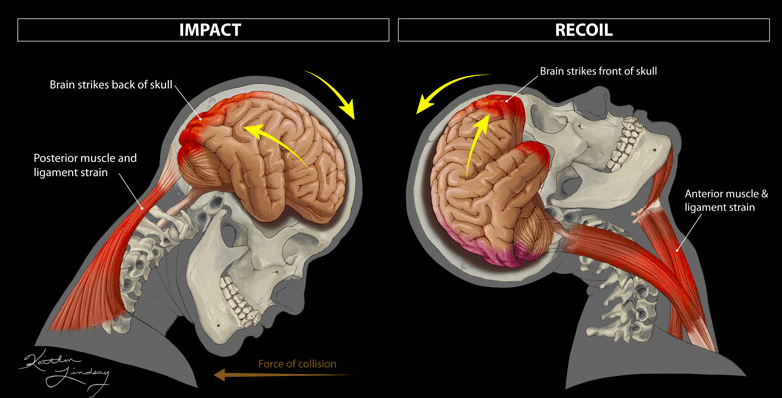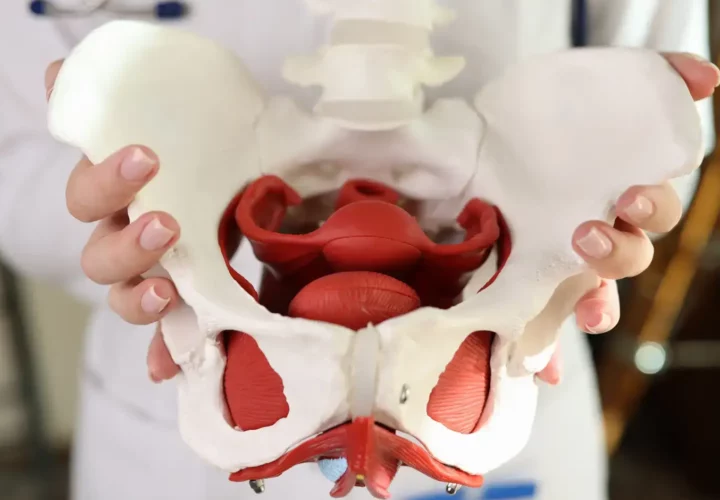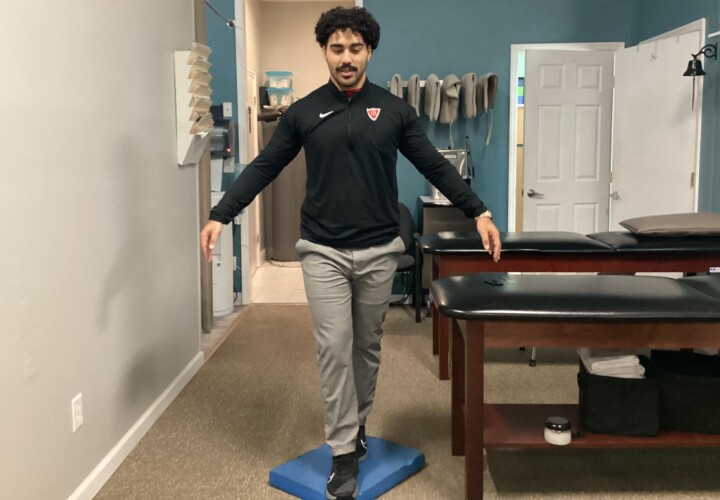A couple years ago I was driving my dad around town and he said let’s go get breakfast. So, I whipped my car into the Waffle House parking lot and slammed into a curb. He said, “BETH ANN! THANK YOU FOR THAT LOVELY WHIPLASH!”. Everyone uses that term “whiplash”, but what really is whiplash?
What is it?
Whiplash is actually very common and occurs to a person’s neck after a sudden acceleration to deceleration force causes an unrestrained fast forward to back movement of their head and neck. This injury commonly comes from vehicle accidents, following a rear end car collision. However, this injury can also come from amusement park rides, sports injuries, and physical abuse.

Treatment and Symptoms
Most cases of whiplash are mild to moderate. These can be treated at home with ice, over the counter medicines, and other remedies. If you have more severe symptoms, such as the following, you should consult a doctor. Pain or stiffness in your neck that comes and goes, severe pain in the neck, or any issues with your bladder or bowels. Other symptoms can include pain, numbness, or tingling down your shoulders, arms, or legs and localized weakness in one of your arms or legs.
Whiplash is typically treated with over the counter pain medications. In more severe situations, prescriptions can be used for painkillers and muscle relaxants.
Besides medication, physical therapy is also used in the treatment of whiplash. Simple exercises will be given to you to help build strength and flexibility in your neck, along with an icepack and maybe some heat. Also, good posture and relaxation techniques may be enforced during your therapy to help keep your neck muscles from straining.
Lastly, a foam collar may be used. This collar will help keep your neck stable and should not be worn for more than 2-3 hours at a time. Foam collars should not be worn over a long period of time either. Typically, they are worn for the first few days following your accident.
Other treatment options can include a chiropractor, electronic nerve stimulation, acupuncture, and massages. Even though very few people get long term complications, some people will have chronic pain and headaches for years following their accident. Getting proper treatment is very important in making sure you are on the road to a full recovery.



